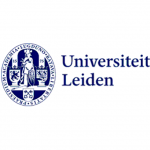
ΑΙhub.org
Applying AI to pathology reveals insights in endometrial cancer diagnostics
 Sarah Fremond
Sarah Fremond
Research at the Leiden University Medical Center (LUMC) Department of Pathology shows the power of artificial intelligence (AI) applied to endometrial carcinoma microscopy images. The group of Dr Tjalling Bosse offers insights that could improve diagnosis and treatment of uterine cancer. Their findings have been published in The Lancet Digital Health.
Endometrial carcinoma is the most common cancer of the gynaecologic tract. At the LUMC both clinical trials and translational research is conducted to improve the care for these patients. In the past years, the LUMC has played a leading role in the development of a novel tumour classification system based on molecular alterations, resulting in four endometrial cancer subtypes. Would it be possible to predict these molecular classes, based on microscopy-images alone?
Thousands of images
Bosse and colleagues applied artificial intelligence on microscopy images of thousands of endometrial carcinoma images from patients that participated in the study. His team developed a model that robustly predicts the four molecular classes of endometrial carcinomas based on one haematoxylin and eosin-stained microscopy slide image, which is the standard histological stain used in diagnostics for assessment of tumour grading and histological subtyping. Through reverse-engineering the researchers were able to show which image-features were relevant for the model’s predictions. The model provided the team with important insights that could be utilized in future studies to further improve diagnostics, prognostication, and management of endometrial cancer patients.
Emerging application of AI
“The application of AI in pathology is emerging. In this project we studied the morphology of tumours that shared the same molecular alteration to better understand the effect these changes have on the appearance of the tumour. With this work, the computer model has directed us to areas in- and outside the tumour that are important,” Bosse notes.
“In cancer diagnostics, the number of variables (molecular, tumour morphology, patient data) has increased exponentially and has complexified patient prognosis prediction. Through training unbiased AI models, AI predictions can also teach pathologists in return by, for instance, identifying novel morphological details on microscopy slide images with prognostic value,” says Sarah Fremond.
Read the research in full
Interpretable deep learning model to predict the molecular classification of endometrial cancer from haematoxylin and eosin-stained whole-slide images: a combined analysis of the PORTEC randomised trials and clinical cohorts
Sarah Fremond, Sonali Andani, Jurriaan Barkey Wolf, Jouke Dijkstra, Sinéad Melsbach, Jan J Jobsen, Mariel Brinkhuis, Suzan Roothaan, Ina Jurgenliemk-Schulz, Ludy C H W Lutgens, Remi A Nout, Elzbieta M van der Steen-Banasik, Stephanie M de Boer, Melanie E Powell, Naveena Singh, Linda R Mileshkin, Helen J Mackay, Alexandra Leary, Hans W Nijman, Vincent T H B M Smit, Carien L Creutzberg, Nanda Horeweg, Viktor H Koelzer, Tjalling Boss.
tags: Focus on good health and well-being, Focus on UN SDGs









